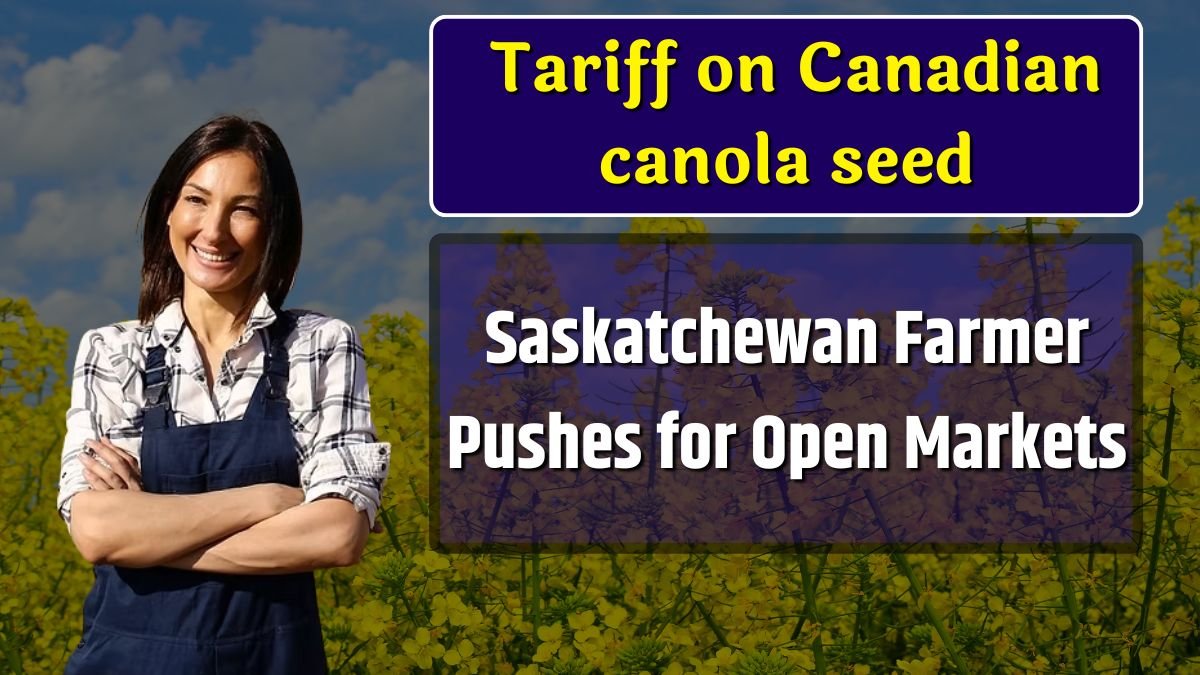Have you heard the latest about Canadian canola exports? Farmers in Saskatchewan are bracing for tough days ahead after China slapped a massive 75.8% tariff on Canadian canola seed.
For growers who depend on global markets, this isn’t just a policy headline — it’s money lost from every acre of land they tend.
What Happened With Canola Tariffs?
China’s decision comes almost a year after launching an anti-dumping probe into Canadian canola. The move is widely seen as retaliation for Canada’s own 100% tariff on Chinese electric vehicles.
The timing hit hard. Within a single day of the tariff announcement, the price of canola futures slipped, leaving many farmers staring at sudden losses.
A Farmer’s Perspective: “We Just Want a Fair Market”
Derek Dery, who runs Sixteen Grains just outside Saskatoon, described the impact in plain terms.
“There’s one canola field that surrounds this farm, and instantly it was one dollar a bushel gone — in just one day,” he explained.
For Dery, this is part of a bigger frustration. Saskatchewan farmers, he says, are always at the mercy of global politics and trade wars. His strategy for now is to stay flexible: forward selling, storing crops, and waiting out the storm.
But he’s clear about what he really wants: fewer restrictions and a market that lets Canadian farmers sell freely.
“I don’t want a cheque from Ottawa because of tariffs. I want to grow my crops, market my crops, and add value to the Canadian economy.”
Why This Matters for Saskatchewan
- Saskatchewan is at the heart of Canada’s $4.3 billion canola industry.
- Tariffs this steep could cut deep into farmer incomes, especially when input costs and inflation are already high.
- The ripple effect may reach beyond farms, hitting processors, exporters, and even local communities tied to agriculture.
Saskatchewan Premier Scott Moe has already called on Ottawa to take “immediate action” to protect the province’s farmers, warning of a “devastating impact” if the dispute continues.
Political Voices: Pushback Against China’s Move
The issue has quickly turned political.
Conservative Leader Pierre Poilievre joined Dery at Sixteen Grains to call out the tariffs, labeling them “totally unjustified.” He argued that China has long targeted Canadian producers and urged Ottawa to respond firmly.
His suggestion? Cancel a $1 billion federal loan to BC Ferries that supports buying Chinese-made ships, and look at ways to pressure Beijing for what he calls unfair treatment.
What’s Next?
For now, farmers are left in limbo. The crop isn’t harvested yet, and while some strategies can soften the blow, no farmer can fully shield themselves from a tariff this steep.
The question hanging over Saskatchewan’s fields is simple: Will Ottawa push back strongly enough, or will farmers be left to shoulder the cost?
Either way, the people who planted the seeds are once again paying the price for global politics.




